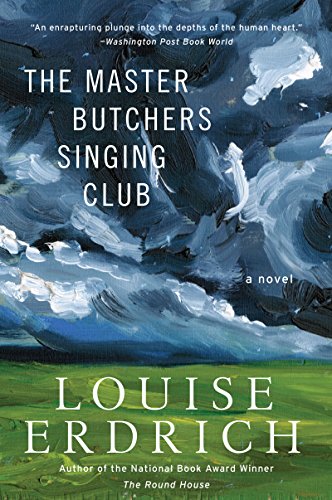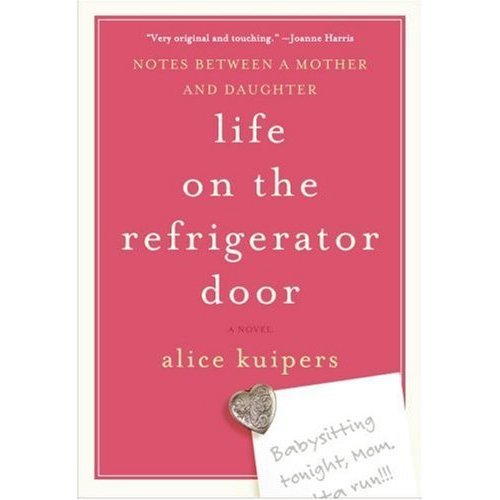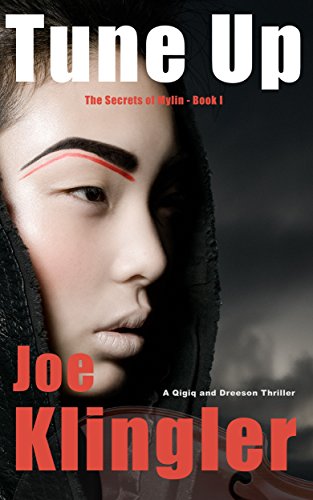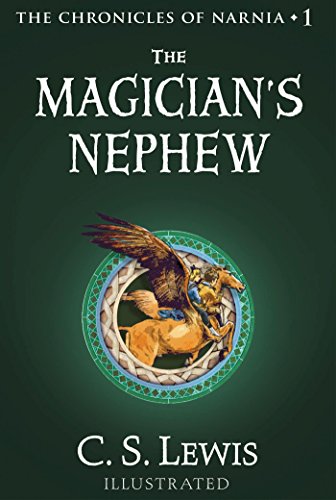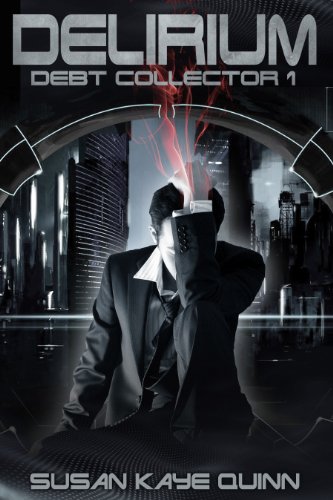On Friday we announced that Taona Dumisani Chiveneko’s The Hangman’s Replacement is our Thriller of the Week and the sponsor of thousands of great bargains in the thriller, mystery, and suspense categories: over 200 free titles, over 600 quality 99-centers, and thousands more that you can read for free through the Kindle Lending Library if you have Amazon Prime!
Now we’re back to offer our weekly free Thriller excerpt:
The Hangman’s Replacement: Sprout of Disruption (BOOK 1): Sprout of Disruption
by Taona Dumisani Chiveneko
Zimbabwe’s last hangman retired in 2004. As the nation drifted towards abolition, no determined effort was launched to find a replacement. However, the discovery of carnivorous flame lilies at the Great Zimbabwe monument triggered a spirited search for a new executioner. Those who know why this discovery energized the recruitment effort refused to talk.
The frantic attempts to find a new hangman were impeded by the lack of suitable candidates. Well-placed sources confirmed that the fear of ngozi was a deterrent. According to this traditional belief, the spirit of a murdered person torments the killer and his family for generations. However, this is only half the story. Several promising applicants did come forward. None met the minimum requirements for the job. The selection criteria were designed to exclude the mentally ill, the vindictive, and the sadistic. However, they did not rule out the desperate.
The Sprout of Disruption (Book 1) introduces the universe of characters whose lives have been set alight by the plant which sparked the recruitment effort. It tells the story of the aspiring hangman who was obsessed with securing the job, the sympathizers who fought to protect him from his prize, and the anxious men who believed that emptying death row would end their horror before the meat-eating plants constricted around their necks.
And here, for your reading pleasure, is our free excerpt:
The Interview
The chairman of the interview panel opened the windows when Abel Muranda walked into the room. Though he insisted that this was meant to counter the poor circulation, everyone, including Abel Muranda, knew that the candidate’s stench was the culprit. His bar of soap had fought in vain.
The interview panel had three members: two men and one woman. The chairman was a Mr. Kuripa. He was stout, friendly and endowed with the demeanour of a man who had been destined to become a bureaucrat. He appeared educated, intelligent and deferential to authority, even when he disagreed with his superiors.
To his left was Mrs. Sibanda. She was in her late forties. Her sharp grey suit and gracious smile enhanced her confident presence. And yet, her eyes had a glimmer of calculation that could impregnate a trivial question with a hidden agenda.
To the chairman’s right was the largest man that Abel Muranda had ever seen. He had the muscular definition of a man who had spent his life restraining elephants in heat. Each of his sleeves looked like a python which had swallowed prey that was larger than the snake was elastic. The garment was losing the fight. The man’s size was not his only striking feature. He also had a massive moustache that looked like a scruffy kitten had nestled above his lips and fallen asleep.
The man’s name was Mr. Gejo.
Though he wore civilian clothes and sat with the bureaucrats, one fact was clear: Mr. Gejo was neither a civilian nor a bureaucrat. Abel Muranda did not know what to make of this man. How could he warm up to anyone who punished his own clothing? How could he relate to a man who hid his mouth behind a hedge of hair? Could such a person be trusted?
After the introductions, Mr. Kuripa opened the interview.
“Mr. Muranda, welcome. This interview will be in Shona. I trust that works for you?”
“Yes, Mr. Kuripa. My Ndebele is poor. I know some English words but not enough to carry on a conversation.”
“Then Shona it is. So how was your journey?”
“Good. Thank you.”
“How did you get here?”
“I walked.”
“Were you followed?” asked Mr. Kuripa casually.
“I do not believe so. The terrain between Gwenzi and Harare is unkind. If anyone tried to follow me, they must have perished along the way. I barely survived.”
“Ah, a sense of humour! So, your village is named Gwenzi?”
“Yes.”
“Where is that?”
“Near Hambakwe.”
“Where is Hambakwe?”
“Not far from Rukukwe.”
“I am sorry, Mr. Muranda, I do not know where Rukukwe is either.”
“About two days from Makwere.”
“Oh. I see. Okay. So how did you hear about this job?”
“I sold my last goat to a man. He was visiting relatives near my village. He told me he lived in Harare. We spoke for a while. As he was about to leave, he asked me whether I had ever considered a job in the city. I told him that I did not know how to go about it. I had never been to the city before. I think he noticed my poverty and decided to help me. He told me that upon returning to Harare, he would ask around on my behalf. He would then send word if something came up. A few months later, here I am.”
“I see,” said Mr. Kuripa. “So this person told you to come to Harare for an interview?”
“Yes. A few months later, he sent a message to tell me that the interview had been arranged. He gave me the date, time, and directions to this building.”
“So you did not formally apply for this job, then?”
“I did not know I was supposed to apply. I just followed the instructions.”
“But we have an application letter in your name. You did not write it?”
“No. I can neither read nor write, Mr. Kuripa. But I compensate for this shortcoming with my enthusiasm.”
“Well, enthusiasm is usually appreciated in most jobs. However, it is not something we encourage for this particular position.”
“Of course, Mr. Kuripa. My enthusiasm is not for the process of executing people, but for the privilege of serving the state.”
“That is better, Mr. Muranda. That is what this job is about. National service. No more. No less.”
Mr. Kuripa shuffled some papers with a great sense of self-importance. Never is a man more proud than when he shuffles paper in front of an illiterate person.
“Well, before we go any further, I will tell you more about the job. After that, each of the members of this panel will ask you some questions.”
“That sounds good to me, Mr. Kuripa.”
“Excellent! So, this vacancy arose in 2004. As you will understand, we are taking our time in choosing a replacement. We need to find the right person.”
“Of course.”
“Officially, the post pays a part-time wage. Nevertheless, we are considering a full-time salary. A bonus is out of the question. As you can appreciate, it is difficult to prove that you deserve a bonus in a job where you have no peers to provide a comparison. It is also impossible to place the duties along any spectrum of performance that can allow us to measure degrees of competence. Either the condemned will die or they will live. There is no room for achieving intermediate results. Besides, you would only work a few days each year. At most, a total of two weeks between January and November. We will never schedule work in December. It’s Christmas time, you see?”
“I see.”
“Good. Now, if you get the job, you will live in a government house. It will be in either Mbare or Kuwadzana. That is still to be decided. Either way, the house will have five rooms and a chicken coop in the back. The full-time salary will be about twelve thousand dollars a year. We also pay fifty percent of your children’s school fees.”
Mr. Kuripa paused when he noticed Abel Muranda’s confused expression.
“‘Fifty percent’ means half, Mr. Muranda. We pay half of your children’s school fees.”
“Right,” said Abel Muranda. His nodding head dispersed the fog of innumeracy.
“Further, we will provide you and your family with free health care.”
“Free health care? Really?”
“Yes, Mr. Muranda. Really.”
“Does that mean my family can see a doctor? Like the ones who wear white jackets?”
“No. Your family will only have access to Doctors of Philosophy. Of course, such doctors are free to wear white jackets, but the only treatment they can prescribe is mind-bending – as they say in English – ‘postulation’.”
Mr. Kuripa cast a smug smile at his colleagues. He was so proud of himself.
“I am sorry, Mr. Kuripa. My English may be terrible, but if I understood that final word correctly, I must protest. I only need health care for my family. I want nothing to do with mind-bending ‘prostitution’.”
Mrs. Sibanda buried her face in her jacket. Her shoulders trembled violently as she tried to suppress her laughter. Mr. Gejo simply sat back in his chair. Deep creases formed at the corners of his eyes. Mr. Kuripa laughed nervously. He was not sure whether his colleagues were laughing at him or at Abel Muranda.
“It was just a joke, Mr. Muranda. Prostitutes are not a benefit of this job. Mind-bending or otherwise.”
“So my family and I will be able to see real doctors then?”
“Yes. The ones who wear the white jackets and carry stethoscopes …”
Mr. Kuripa waited for Abel Muranda’s relief to set in. Before it could, a fresh cloud of confusion drifted across the candidate’s face.
“A stethoscope is a long pipe with two splitting trunks that branch off into the doctor’s ears … Doctors use it to listen to a patient’s circulation? … How many doctors have you ever met, Mr. Muranda?”
“One. He saved my life. I do not remember him using the object you described, though. Anyway, I do not care if a doctor pounds me on the head with a wheelbarrow. If he went to doctor school, and he wishes me well, I will trust him.”
“Naturally,” replied Mr. Kuripa. “But though I am not a doctor, I can assure you on behalf of the profession that pounding patients with wheelbarrows would not be therapy. It would be assault. Besides, not many of our doctors are built like Mr. Gejo. Lifting a wheelbarrow for such a purpose would cause more injuries among the doctors than the patients.”
Mr. Kuripa laughed and slapped Mr. Gejo on the shoulder. The camaraderie did not extend beyond Mr. Kuripa’s portly frame. The big man remained expressionless, unreadable behind his massive moustache. Mr. Kuripa quickly moved on.
“We also provide a ‘spiritual travel benefit’.”
“What is that?”
“It pays for your expenses if you need to go away to a quiet place for spiritual recovery. But we only provide it when the year has been … especially busy. Officially, we do not set a minimum number of days you need to work before you can claim the benefit. Nevertheless, the Budget Office has placed an informal condition. You can only use the funds if you work at least eight days a year. That said, we are flexible. Your mental health is our priority. However, try not to use the benefit if you work less than six days a year. At that level, our superiors will begin to doubt your fortitude. Maybe even your work ethic.”
“That sounds good, Mr. Chairman. I am sure that working six days a year without a break for spiritual recovery will not place an unbearable burden on my soul.”
“Well said, Mr. Muranda. But remember the unwritten rule. Eight days is the unofficial minimum. Budget cuts. Every department is struggling with them. Still, if you work eight days a year, you will have 357 more to enjoy your spiritual recovery. Unless it is a leap year, in which case … Never mind.”
Mr. Kuripa placed his plump forefinger on the bridge of his spectacles and slid them towards the tip of his tubby nose. Peering over the frames, he looked straight at Abel Muranda, eyeball to eyeball. Mr. Kuripa always did this when he wanted to stress an important point.
“Do not underestimate how much time you need to spend on spiritual recovery, Mr. Muranda … Spiritual recovery is very important.”
Abel Muranda realized that expressing wisdom gave the chairman a profound sense of self-importance. It was Abel Muranda’s first interview, but his instincts told him it was wise to embrace a recruiter’s cherished values. The aspiring hangman nodded respectfully.
“Mr. Chairman, I will value every second I spend on spiritual recovery.”
“Perfect. Another benefit you will enjoy is twenty-four hour access to the prison chaplain. He has a cottage on the grounds of Mazambuko Maximum Security Prison. That is where death row is located. You can consult him in person during regular hours, but at night, you can only access him through his cell phone. Just to let you know, the chaplain is a truly pious man. The previous one was ill-tempered when contacted in the early hours. However, you should have no problems with Father Masuku. Still, as with all resources, after-hours access to the good Father is limited to three days before, and five days after any given workday. Outside of those times you must wait until the morning.”
“That sounds reasonable. Even priests need a break for their own spiritual recovery.”
“Exactly. Now to the substance. I will ask you the first question,” said Mr. Kuripa, scratching his chubby cheek with his fancy pen. The muscular Mr. Gejo leaned forward with great interest. His shirt was quickly losing the battle to remain intact. He still had not spoken a word. Even Mrs. Sibanda had greeted Abel Muranda and offered him a glass of water when he walked into the room. Maybe the big man could not talk and punish his clothing at the same time?
The chairman placed his pen on the neatly stacked papers before him. His eyebrows curled and huddled around his eyes. He was about to ask a critical question. He needed all his powers of concentration to process the answer.
“Why do you want this job, Mr. Muranda?”
“First, I am a hard worker. Second, I believe in justice. Third, I need the money. The drought in the countryside has been cruel. I lost ten cows. I had to kill all my chickens. As I mentioned before, I also sold my last goat to the man who led me to this interview. My goat’s name was Hurudza.”
“Like the lawyer?” exclaimed Mr. Kuripa.
“What lawyer?”
“Never mind. I am sorry for the loss of your livestock. Particularly your goat. He must have been special to deserve his own name.”
“He was the best goat in the world. Gwenzi goats are known for their hardiness.”
“Ah! Now I know why your village sounds familiar. It is the land of the invincible goats. Those creatures are like cactuses in the desert. Walking biltong! Dried meat with beating hearts!”
“They are, Mr. Kuripa. So when they start to die out, you know the situation is desperate. Hurudza was close to death when I sold him. Anyway, my livestock are no longer an issue. Taking this job will provide my family with good food and health care.”
The panel members listened attentively. Only Mr. Gejo did not write any notes. It was not clear whether he had a sharp memory or whether he would never forget the answer to such a question. He just sat there, constipating his shirt.
Mrs. Sibanda was next. “Mr. Muranda, are you not afraid of ngozi?”
“I do not believe in ngozi, Mrs. Sibanda.”
“So you do not believe that if you kill a man, his spirit will torment you and your family for generations?”
“I am not a superstitious person, Mrs. Sibanda. Besides, even if such a spirit were to rise from the corpse of a man I executed, I am sure it would understand that I was acting on behalf of the state. The spirit will have to take its grievances to the people you represent.”
Mrs. Sibanda and Mr. Kuripa scribbled furiously. Mr. Gejo simply stared. Apart from the occasional twitch of his giant moustache, he remained motionless. The chairman turned to see whether his hulking colleague had any questions. The big man shook his head. Mr. Kuripa continued.
“Let’s discuss hanging protocols. Would you have any difficulty executing someone who is not wearing a hood?”
“I do not understand, Mr. Kuripa. Why would the prisoner wear a hood?”
“Well it’s tradition, I guess. Every vocation has its traditions, you know? Through the ages, many cultures have chosen different approaches to the death penalty. Some have used firing squads. In this approach, a group of men all shoot the prisoner at the same time. That way, no one knows who fired the fatal shot. The burden of killing is distributed across many shoulders.”
Mr. Kuripa patted his own shoulders to mark his point. Secretly, he was congratulating himself for his knowledge of the subject. Secretly, everyone in the room knew that this was exactly what he was doing. He continued sagely.
“A diffuse guilt provides for diffuse consequences. If you can spread the guilt over enough people, each person’s share of the repercussions is reduced to a mere moral shortfall. When everyone is guilty, no one is guilty. At least that’s the rationale behind the firing squad. All the shooters sleep a little better at night. But note that this method was more commonly used in Europe and the Americas. It is relatively foreign to the African continent. I guess we like our killings to be up close and personal.”
Mr. Gejo flinched imperceptibly. The vibrations rippled gently through the room. Only Mr. Kuripa did not feel them. He continued his monologue on execution protocols.
“Our hangman will not have access to a firearm. Neither will he be allowed to manhandle the prisoners. If that was our chosen approach, we would have recruited from – ”
Mr. Kuripa had started to turn in Mr. Gejo’s direction when he quickly snapped his head back to face Abel Muranda. The chairman massaged the base of his neck to sooth the muscular hiccup that had caused the suggestive twitch.
“I must improve my sleeping posture,” he muttered with an awkward wince. Mr. Kuripa had no future as an actor. Before anyone could digest his dismal performance, he quickly returned to his field of competence: human resources.
“This will be a lonesome occupation. Unlike the brotherhood of the firing squad, the hangman cannot resort to the strength of other shoulders to share the load. Only his conscience will sustain the piercing pressure of the spiritual needle-point. The only question is whether a hood will be involved or not. One approach is to place the hood on the prisoner. That way, no one at the execution sees the face of the condemned man before he dangles from the rope of justice. Another alternative prefers that the executioner wears the hood. Some systems even require a combination of the two. This latter option is known as the ‘mutual anonymity approach’.”
“So how can a hangman see what he is doing if his head is covered?”
“In those cases, the executioner’s hood has two peep-holes punched into the front. He can see without revealing the rest of his face. This arrangement allows him to escape the wrath of the prisoner’s spirit, while protecting his reputation as a cherished member of his community. This protection is vital where executions are performed with an axe. The public can excuse a man who pulls the lever of a gallows, but they cannot summon affection for an executioner who beheads with a blade. The differences between the methods are irrelevant, if you ask me. But visuals are everything. The dramatic flair of an axe can overwhelm our satisfaction with the underlying justice it delivers. That is probably why axes have lost favour in many systems.”
“That is comforting to hear, Mr. Kuripa. I would reconsider my interest in this job if I had to use an axe.”
“Wouldn’t we all? Let’s return to a more civilized subject. Can you hang a prisoner without either of you wearing hoods?”
“Well, to be frank, that was my expectation when I came here. I knew nothing about the different approaches to the death penalty. Now that you have informed me of the hood option, I must confess that I do not like it. I believe that if you are going to kill someone, you must be willing to look them in the eye. If you cannot do that, there is no justice in your motive. No justification in your conscience.”
Mr. Gejo’s eyes sparkled at the response. A subtle spasm in one of his biceps alarmed a fly that had nestled on it. The insect fled towards the open window. Mr. Kuripa hardly noticed the reaction. His intellect was formulating a mind-bending postulation of its own.
“You make an interesting point about motives and justifications, Mr. Muranda. But many brutal killers can murder their victims while looking them in the eye. Some even enjoy it more that way. Does that justify their motives?”
“Maybe not their motives, Mr. Kuripa. A hangman’s justification lies in the authority granted by the state, not the pleasure they may get from the act of killing. I would also like to add that on a personal level, I do not think highly of such people.”
“Neither do we, Mr. Muranda. It is comforting to know that you will enjoy no gratification from looking into the eyes of the prisoners you will execute.”
“There would be no gratification on my part.”
Mr. Kuripa scratched his cheek as he regarded Abel Muranda with curiosity. He made a brief note and continued the interview.
“Mr. Muranda. Let me present you with a scenario. Suppose you had to execute a man you thought was not guilty. He is protesting his innocence as you strap him to the gallows. He is only twenty years old. Let’s say he was eighteen when he committed the capital offence. The boy looks like your son. He is crying. Would you be able to go through with the execution?”
“Yes.”
The panel waited. The expected elaboration never came.
The interview lasted another forty-five minutes. Only Mr. Kuripa and Mrs. Sibanda asked any questions.
Did he have any trouble sleeping?
Yes. But only when he worried about money to feed his family.
Did he find it easy to forgive people who wronged him?
Yes. Unless they wronged his family.
Was he a religious man?
Yes. But only when his prayers for his family were answered. Right now his faith was tentative. The outcome of this interview would resolve his indecision.
Did he have any chronic health problems?
Apart from poor eyesight in his left eye? No.
Did he frequent prostitutes?
No. Had he not made this clear earlier? Besides, he did not know of any in his village. Or the next one. There may have been one a few villages down …
How would he handle the guilt of taking a life?
By looking at his family and knowing they had access to health care. The guilt would take care of itself.
How many children did he have?
Three.
How many dinner plates did he have at home?
Two. But nowadays, the whole family ate from the same plate. It was large enough to fit the food they had.
How many meals did the family eat each day?
One.
How many goats did they have?
None. He sold the last one to the man who got him the interview, remember?
Of course. How about a sense of humour? Did he have one? He had shown promise earlier in the interview.
Well, only his children found him funny, but they were young. It did not take much to amuse them. However, if a sense of humour was a requirement of the job, he would work night and day to develop one.
Did he drink?
Always. In better times, he enjoyed goat milk. Nowadays, he only drank water.
How about alcohol? Did he partake?
Only if drinking it would increase his chances of getting the job. Otherwise he had no intention of picking up the habit. Alcohol tasted bad and made people stupid. Abel Muranda did not want to be stupid.
He need not worry. Drinking alcohol would not be necessary. The job was for the courageous, not the stupid.
And flowers? Did he like flowers?
Only those that grew from food-producing plants. Like sunflowers.
“We have one last question for you, Mr. Muranda,” said Mr. Kuripa. “In principle, do you believe in the death penalty?”
“To be honest, I have not given it much thought.”
“Well, now is a good time to do so.”
Abel Muranda looked at Mr. Kuripa with a thoughtless glare.
“Upon reflection, my answer is no, Mr. Kuripa. But I do believe in my family. If my beliefs prevented me from pursuing this job, I would be subjecting them to the death penalty. So whether you hire me or another candidate, people will die. I would rather it were not my family.”
“So it is all about your family, Abel Muranda?”
“It is.”
“Let’s say you got the job. What if you found a suitcase full of money the next day? Assume the amount is more than you need to give your family a good life. Would you abandon us?”
“I always honour my obligations, Mr. Kuripa. I would do the job while you looked for someone else. In any event, I do not expect to find a suitcase full of money. A wise man once said: ‘If you plan your life around the hope of finding a suitcase full of money, you will starve to death.’”
“Which wise man said those words?”
“Me. I only thought of them right now. A true survival instinct always assumes that starvation is one’s fate. Life is a constant battle to change that destiny. Dreaming of unearned riches is foolish.”
Mr. Kuripa and Mrs. Sibanda scribbled furiously. Mr. Gejo simply stared at him. Abel Muranda ignored him and continued.
“Mr. Kuripa, last month one of my neighbours sat outside his house for a week until he died. He had lost two children up to that point. At first we, his neighbours, fed him and his remaining family members. In the end, it became impractical so we stopped giving them food altogether. We had to look after our own families. So they all died in agony. The man expired a few days after his last donated meal. He abandoned his wife and three surviving children to die in his absence. Starving to death is a physically demanding business, Mr. Kuripa. You do not have to invest any effort in it, but make no mistake: it will invest a lot of effort in you. Hunger works the body with a cruel discipline. Even when it knows that you are beyond recovery, it will not loosen its grip. You suffer until the vultures are confident that they can start feeding without much opposition. At that point, a more interactive pain begins.”
Mr. Kuripa and Mrs. Sibanda glanced at each other. Mr. Gejo kept his gaze on the candidate. Abel Muranda paid them no attention. His answer had drifted into a vocal account of an internal trauma.
“Those creatures … The ones in my village are hardier than scavengers elsewhere. Gwenzi has ‘digging vultures’. They are never satisfied with eating a creature that died in the open. They will watch a funeral procession, and after the mourners have left, those birds will descend on the grave and start digging. Their beaks can peck through an elephant’s skull. Their claws can dig furrows that would shame a plough. If the grave is shallower than the height of an adult man, the vultures will get to the corpse … even if they have to dig all night. So when someone dies, we must bury them under massive rocks to prevent this final humiliation. This makes the birds furious. You can hear them screeching in rage as their beaks fail to breach the tomb. The pecking noises haunt the darkness. The sound trembles up your spine. It feels like they are eating you in advance… sending you a warning to say: ‘Pray that they do not leave a gap in the rocks when they bury you. If they do, we will pluck you out strand-by-strand. Muscle fibre by muscle fibre… Like a ball of cotton that’s wedged in the crease of futility’”
The room was still. Abel Muranda looked towards the panel and asked: “How can you tell if a carcass has been eaten by a Gwenzi vulture?”
“How?” asked Mrs. Sibanda. Her voice had fallen to a whisper.
“You can’t. There is nothing left to find. They eat everything, including the bones. Those birds are aggressive. Especially during mating season …”
Mrs. Sibanda leaned back in her chair and crossed her hands. Her eyes remained fixed on the candidate.
“Their cry is like nothing you will ever hear in your life … For days, I saw those birds watching patiently over my dead neighbour’s family … That was a tragic fate for people who were not guilty of any crime.”
Abel Muranda emerged from his nightmare and refocused on his prize.
“Beyond my family, I also plan to help others in my village whenever I can. So even if only a third of the people on death row are guilty, there would be more justice in executing them all than in abandoning this job. My salary would save many more lives. It would also give my family a new life. And free health care. Surely there is a lot of justice in that?”
Chairman Kuripa shuffled his papers with finality. The interview was over.
“Thank you for coming, Mr. Muranda. We will let you know after we make our decision.”
“When will that be?”
“Well, we have several other promising candidates to interview. This is an important responsibility. We want to make sure we get it right.”
“Mr. Kuripa, I may be uneducated, but my desperation has sharpened my survival instincts. Right now, I am hungry enough to smell a peanut buried at the bottom of a mineshaft. That same instinct tells me that you do not have any other suitable candidates for this position.”
Mr. Kuripa scoffed out loud. He turned to his colleagues to seek support in expressing surprise at such impudence. They ignored him. The chairman coughed with a bureaucratic dignity before placing his elbows on the desk and leaning forward.
“That is not true, Mr. Muranda,” he said with a well-practised smirk. “In fact, we interviewed a promising candidate just before you came in.”
“Yes. I saw him on his way out,” replied Abel Muranda politely. “He looked happy. At peace. He also shook my hand and wished me well in my effort to find another job. Anyone who emerges from such an interview with a sense of promise rather than necessity will not be hired.”
Mr. Kuripa cleared his throat again. He had done his best to be polite to this peasant. Now it was incumbent upon him to discipline his ignorance.
“Mr. Muranda, my colleagues and I have five university degrees among us. I humbly admit responsibility for three of those. One of my qualifications is a master’s degree in, what we call in English, ‘organizational behaviour’. This credential means that I am an expert in determining the human resource needs of diverse work environments. It also means that I have spent more than twenty years interviewing people for many types of jobs. Given the unfortunate imbalance of education and experience between you and me, it is clear that I am better qualified to decide what sort of person is best for this job.”
Chairman Kuripa had articulated himself more eloquently than he had intended. His forehead was glistening with pride as he turned to accept the dutiful nods of approval from his colleagues. There were none.
Abel Muranda had listened carefully. Mr. Kuripa was an impressive man.
“Thank you, Mr. Chairman. You are right. I know nothing about organizations and behaviour. I know nothing about how the government hires people in general. But what I do know is that none of you have ever hired a hangman. No qualification can prepare you for this. We are all in unfamiliar territory. You, me, your colleagues and all five of your university degrees.”
A flash of anger was quickly replaced by a plastic smile on Mr. Kuripa’s face. He glanced nervously at his colleagues before shuffling his papers once more. Mr. Gejo was now fighting to suppress a fit of laughter. Fortunately, his moustache was large enough to hide the world’s biggest grin. But sadly, his constipated shirt was on the verge of surrendering to his quaking shoulders.
Mrs. Sibanda wrote furiously on her pad. Abel Muranda was illiterate but her unstructured hand movements told him she was merely scribbling, rather than committing any thoughts to paper. With his plastic smile still glued to his face, Mr. Kuripa looked up from his papers and faced Abel Muranda.
“I admit that this is a unique recruitment situation, Mr. Muranda. But I must maintain my position. We need to evaluate other candidates. It is this panel’s responsibility to be thorough. This is a job in which mental distress and job satisfaction are both discouraged. Balancing these competing demands requires a special personality.”
“Or a special family, Mr. Kuripa. I think it is no coincidence that throughout this interview, you have spoken as though I already had the job. You constantly used the word ‘will’ instead of ‘would’ or ‘may’.”
“I apologize if I gave that impression. I misspoke.”
“You misspoke repeatedly.”
“Then I apologize … repeatedly. This is an interview, not an orientation to a job you have not yet secured. We are merely exploring your suitability. This exploration will continue beyond this meeting. It will not be pre-empted by your desperation.”
“Mr. Kuripa, it took me a long time to get here on foot. If I return to my village, you may not be able to easily contact me. I have no phone. The roads are flooded. Beyond that is a land that is drier than a bag of salt. My hope is to return to my village with the knowledge that I have earned myself a job. I would then return to Harare with my family. I am as desperate for that result as you are to find a hangman. Remember that peanut in the mine shaft? It’s punishing my nose. Please, Mr. Kuripa. Let’s work together on this.”
“You are an odd creature, Mr. Muranda. I concede that your instincts are correct. We need to hire a hangman soon. But please realize that the final decision is not up to us. It must be made by our superiors. The process cannot be rushed. It may take up to three weeks. Can you stay in town for that long?”
Abel Muranda was about to protest when the silent Mr. Gejo nodded once. It was barely visible. Abel Muranda could not tell whether the nod was instructing him to agree with the terms or whether it was validating the panel’s inability to reduce the waiting period. Either way, the authority it conveyed was more muscular than the man himself.
“Three weeks is too long. However, the poor always live on debt. At this point, time is the only thing I still have the credibility to borrow … even though my family cannot afford it. The wait is longer than their remaining rations. I was not planning on being here that long but I have no choice.”
“No, you don’t,” confirmed Mr. Kuripa with a shake of his head. “I must also repeat that we are not guaranteeing that you will have a job at the end of your wait.”
“I understand.”
“Good. The interview is over. Thank you for coming.”
“But I have questions. Are you not supposed to ask me if I have questions?”
The panellists glanced at each other.
“Okay, Mr. Muranda. What are your questions?”
“How many people are on death row?”
“About fifty-eight.”
“You’ve had no hangman for eight years. Why are you so desperate to find one now?”
“Because the prisoners have been waiting too long. After being on death row for extended periods, they start to crave some closure.”
“I see, Mr. Kuripa. Still, I find it strange that this process is being sped up by the emotional needs of the people with the most to lose.”
“Well, it is.”
“Is it true that the government is considering a permanent ban on the death penalty? I understand this may happen as soon as next November.”
“I thought you said you had no access to newspapers or radio waves in Gwenzi.”
“I do not. But this is not the sort of issue that would be publicized in either.”
“So who told you this?”
“The man you interviewed before me. The one who declared himself the most promising candidate.”
“Well, I don’t know who he has been talking to, but I am not a policymaker, Mr. Muranda. I don’t know if they are going to get rid of the death penalty. No one shares that sort of information with me.”
“Maybe not. But that does not stop you from hearing rumours. If I heard it from another candidate, then I am sure you must know much more.”
“If I did, I would not be able to discuss such matters with you, Mr. Muranda.”
“Fine. I have another question. Who will be the first three prisoners to be executed?”
“For a man of no education you are quite clever. But I am also smart enough to realize that this question is a different version of the previous one. I will answer neither. Does that change your desire for the job?”
“No. My questions were driven by curiosity. I never let that get in the way of survival.”
“Or free health care!”
The chairman laughed loud and laughed alone. After the awkward moment passed, he rearranged his papers and made a brief note of no importance.
“Please return three weeks from Wednesday at 2:00 p.m. Ask for Rumbidzai at the front desk. She is our supervisor’s secretary. She will let you know what the final decision is.”
“I thank you all,” said Abel Muranda with a nod.
“You are welcome,” replied Mr. Kuripa.
“Can I ask one more question? Actually, it is more of a favour.”
“What is it, Mr. Muranda?” asked the chairman.
“I do not know anyone in the city. I have no problems with sleeping under a bridge or in the streets. But it would be nice to buy a little food for my family back home. Can I have a small salary advance?”
“No, Mr. Muranda. You have not been hired. No job, no advance.”
“In that case, I ask that you repay my travel costs.”
“We have no such policy. Besides, even if we did, you walked here. If you had taken the bus, you could have made an argument for the ticket price. But walking is neither a job to be compensated nor an expense to be reimbursed.”
“But I also need to buy medicine. I think I have an infection. I would not have contracted that infection if I had not come for this interview.”
“Your infection is none of our concern, Abel Muranda. Besides, I am surprised you would make such a request. A short while ago, you spoke piously about the follies of expecting unearned riches. Now you are asking for an unearned handout? Who do you think I am? Your neighbour who died to feed the vultures?”
Mr. Kuripa shook his head firmly.
“Tell me something, Mr. Kuripa. Did you also earn a degree in being inhumane? If so, I am sure you were the smartest student in the class.”
Mrs. Sibanda covered her mouth with her hands. Mr. Gejo stroked his giant moustache. The creases at the corners of his eyes deepened. Mr. Kuripa was quaking with anger.
“Listen to me, ‘Mr. Free Health Care’. Does this place look like your god-forsaken village? You are in the big city now. This is not a place where you can just walk up to strangers and ask to borrow milk for your hungry child. People who do that sort of thing in the city are not called neighbours. They are called beggars. Good people pity them. Bad people spit at them. No one envies them. But if you want a free handout, go outside and sit yourself at a street corner. If I pass you on my way home, I may throw a few coins in your direction. But as long as you are in this room, you must behave like a candidate being interviewed for a very important job: with pride and decorum.”
Abel Muranda stood and walked towards the interview panel. He stopped within arm’s length of Mr. Kuripa.
“As a man with a hungry family, I can afford neither pride nor decorum, Mr. Kuripa, even though I deserve both.”
Abel Muranda placed both hands on the table and lowered his face so close to Mr. Kuripa that the chairman felt the aspiring hangman’s breath clouding his face like a moist swarm of invisible bees.
“However, the one thing I can afford is to tell you that serious injury awaits any man who speaks of my children’s hunger in uncompassionate terms. I have a set of muscles that I do not use often. The last creature that provoked their anger was a crocodile. That reptile will spend the rest of its life without the use of its eyes. Generally, I prefer not to use the muscles responsible for that misfortune, but when I do, the disruption is always memorable. These are words I can afford to share, Mr. Kuripa. In exchange, I will accept the apology that you seem eager to deliver. Unless of course, you believe that you are better equipped than a crocodile to defend yourself?”
Mr. Kuripa turned his gaze to Abel Muranda’s fibrous arms. Those muscles would have been thrice their size had they not been dried by the sun and salted in the man’s own sweat. Both arms were taut and ready to fulfill the promise their owner had just made.
Mr. Kuripa turned to Mr. Gejo. The big man sat back and crossed his hands. He would not intervene if the disruption broke out. The chairman turned to Mrs. Sibanda. Surely, if she came to his defence, Abel Muranda would not manhandle her to get to him? The aspiring hangman was a rural simpleton, but he seemed like the type that respected the opposite sex. There was no way he would attack a woman. Mrs. Sibanda thought otherwise. Her eyes were darting around the room. She was calculating the distance to the nearest exit.
Mr. Kuripa cleared his throat. A stream of sweat rolled down the bridge of his nose and onto the ream of papers he was so fond of shuffling.
“Well, Mr. Muranda. There is an expression in English which says, ‘I jest—’”
“Apologize.”
The dried meat in Abel Muranda’s arms squeaked with mounting tension. Discipline was imminent.
“I am sorry,” Mr. Kuripa said with more haste than he had intended.
The muscles in Abel Muranda’s arms loosened like the neck of a cobra deflating after a passing threat.
“I accept your apology.”
Abel Muranda bowed to the panel and returned to his seat. Mr. Kuripa exhaled loudly. The storm clouds had passed without urinating on him. However, his ego was drenched.
The chairman tried to regain his composure while turning to his papers. His sweat had bound the corners of the pages together. When he tried to flip through them, the edges refused to separate. His intensified effort only scuttled the papers in all directions.
In a bid to restore his authority, Mr. Kuripa cleared his throat.
“Do either of my esteemed colleagues have further questions?”
Mr. Gejo and Mrs. Sibanda shook their heads.
“Very well, Mr. Muranda. There is only one further point of business. You are to return next Tuesday for another meeting.”
“There is more?” asked Abel Muranda quizzically.
“Yes. You need to see a doctor. I am afraid this doctor does not deal with physical injuries. She is a brain doctor. A ‘psychiatrist’. Her job is to make sure that the chosen candidate is mentally stable.”
Mr. Kuripa hastened to clarify his statement. His recent peril was still at the forefront of his mind.
“Just a formality, of course. We must do this with everyone. Just in case.”
“Mr. Kuripa. I am sure you could identify a mad man if you saw one. Why do you need a special doctor to confirm the obvious?”
“This isn’t just about making sure that the new hangman is sane. It is also about making sure that he can remain so after killing people. Sometimes, sanity is the mere absence of trauma. Many people are provisionally sane until they are tested by unexpected hardships.”
“Well, my sanity has survived more hardships than the regular person will ever endure, Mr. Kuripa. If I was only ‘provisionally sane’ before those tragedies, I have since proven my mental stability.”
“I am sure that’s the case, Mr. Muranda, but I don’t make the rules. Everyone must go through the same process. Come back next Tuesday for your assessment. The final decision will be made three weeks from today. Good day, Mr. Muranda.”
“Good day to you all. Please speak of me kindly to your superiors. I am the best man for this job.”
Mr. Kuripa crossed his hands and muttered beneath his breath, “I wonder if the job feels the same way about you.”

